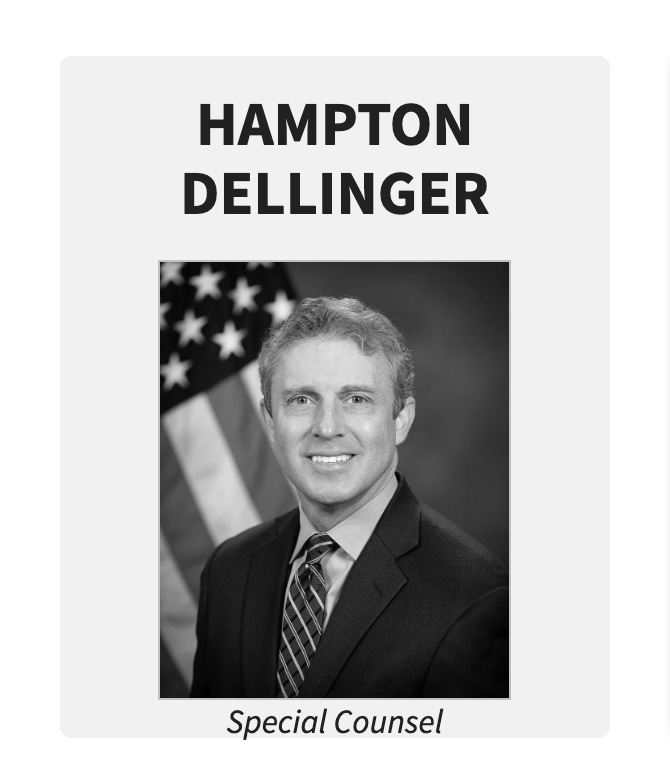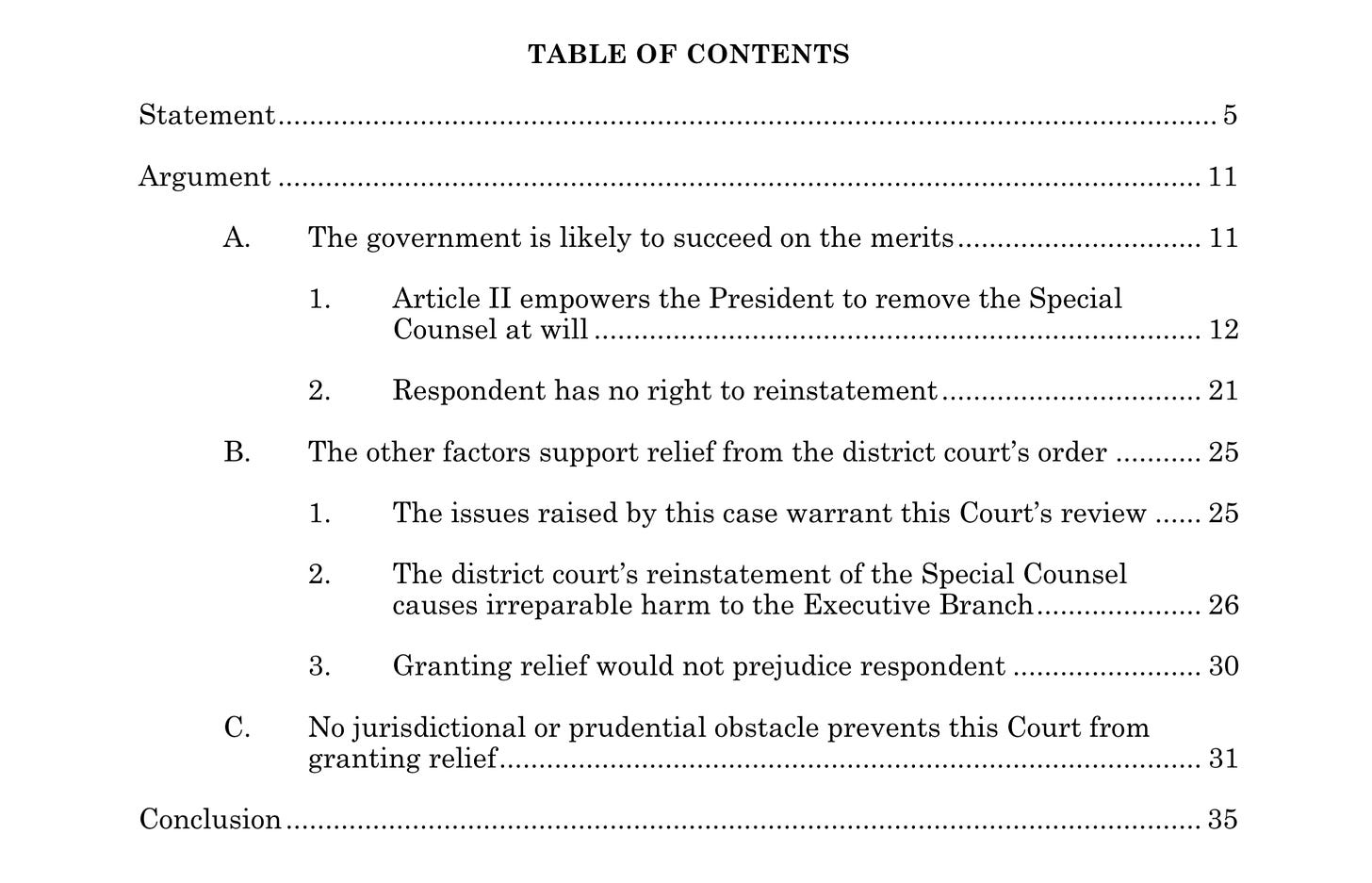You may find the terminology around the case the Trump administration is appealing to the Supreme Court confusing. That case, which I flagged Sunday night, Bessent v. Dellinger, is about the head of the Office of Special Counsel. But this is not a Jack-Smith-type special counsel.
The U.S. Office of Special Counsel (OSC) is an independent office whose primary mission is to protect federal employees and applicants from “prohibited personnel practices,” including reprisal for whistleblowing. Prohibited personnel practices include coercing political activity, nepotism, and discrimination.
OSC provides a secure path for employees who want to disclose wrongdoing in government. The confidentiality of the whistleblower is protected, and there is a guaranteed process for investigating alleged wrongdoing in the following categories:
Violation of a law, rule, or regulation;
Gross mismanagement;
A gross waste of funds;
An abuse of authority;
A substantial and specific danger to public health or safety; and/or
Censorship related to research, analysis, or technical information.
In other words, the office’s work is an important guarantee of good government. That, perhaps, explains why Trump was keen to fire the incumbent, Hampton Dellinger, who was appointed during the Biden administration. Dellinger, a graduate of the University of Michigan and Harvard Law School, served as assistant attorney general overseeing DOJ’s Office of Legal Policy. He has experience both in government and private practice representing whistleblowers and others challenging government activities. And he was previously the chief legal counsel in the Office of the Governor in North Carolina, where his work included investigations into Medicaid fraud and political corruption.
If you’re interested in rooting out waste and corruption, you want someone like Dellinger in place. So, Trump’s insistence on firing him is telling.
Remember that even as it proceeds to the Supreme Court, this case, like other cases we’ve been discussing, is at the earliest of preliminary stages. The case was only filed on February 10, with Dellinger challenging Trump’s efforts to remove him. The judge filed a brief administrative stay that same day, noting, “In the interim, though, to preserve the status quo … the Court will issue a brief administrative stay. An administrative stay ‘buys the court time to deliberate’: it "do[es] not typically reflect the court's consideration of the merits, but instead ‘reflects a first-blush judgment about the relative consequences’ of the case … While administrative stays are more common in appellate courts, district courts have recognized their applicability in cases seeking emergency relief - including in this District.” Subsequently the judge granted a TRO. The government’s effort to appeal in the D.C. Circuit was unsuccessful, which is why the case is now headed to the Supreme Court.
The table of contents for the government’s brief outlines the argument they want the Supreme Court to consider. You can read the full brief here.
This is the first of the current challenges to Trump’s takeover of the executive branch to reach the Supreme Court, but as we noted last night, it would be a mistake to read too much into it. Although presidents can only remove the special counsel of the United States for “inefficiency, neglect of duty, or malfeasance in office,” that substantive issue will not be on the table in this early appeal. Nonetheless, Court watchers will be on alert for any signal the Court may give of how it views the early activity by Trump 2.0, and whether it may be willing to pump the brakes, at least temporarily.
However, the case inevitably mounts a challenge to Congress’ limitation on the president’s power to fire leaders of independent agencies. Currently, the law says a president must have some kind of cause. Where SCOTUS ultimately lands on this will have an enormous impact on Trump’s ability to reshape government by removing people he believes are insufficiently loyal to him.
We’re in this together,
Joyce






I remember a time when I wanted a case to go to the Supreme Court.
Now I am fearful they will enable Trump and hasten our exit from the strongest democracy in world history.
If the Supreme Court decides to enable Trump’s coup, we may have a country/ democracy that will take decades to repair if it even can be repaired at all. Ultimately voter suppression and heavy handed exec actions will change govt so fundamentally, we won’t recognize this country. I already don’t. Kind of think we need mass protests now before the military becomes another subordinated/complicit part of the coup.